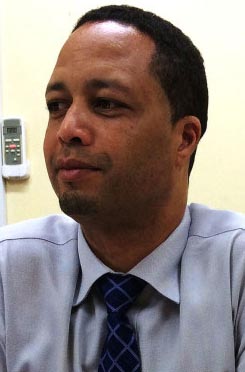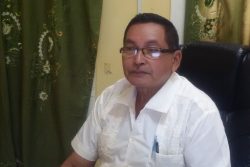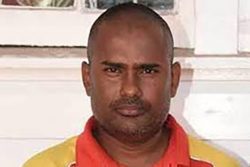In 2015, the Inter-American Development Bank (IDB) data for 2011–2014 showed that non-traditional exports averaged 0.6% of all Guyana’s exports. The Unit Rejection Rate in the US for Guyana’s fruits and vegetables from 2006–2010 was six rejections per US$1 million. The World Economic Forum’s 2015 Global Competitiveness Report ranked Guyana 121st out of 140 countries.
However, according to Chief Executive Officer (CEO) of the Guyana Office for Investment (GO-Invest), Owen Verwey, the Agency is moving to tackle global competiveness and into a promising new era of investment and export promotion.
In early 2016, the Agency started on the path of streamlining and modernising its operations to implement the Ministry of Business’ Strategic Plan 2016-2020 to promote non-traditional, value-added exports— especially in manufacturing, forestry, tourism and agriculture—and reduce Guyana’s dependence on exports of gold, bauxite, sugar and rice.
On January 22, 2017, as part of this initiative, the Ministry of Business, in collaboration with the IDB, launched a US$9 million IDB-funded project titled, “Enhancing the National Quality Infrastructure for Economic Diversification and Trade Promotion”. Its broad objectives were to enhance the National Quality Infrastructure (NQI) and create a National Export and Investment Promotion Strategy. Three subcomponents were identified. These were: (a) modernising the institutional framework for the NQI; (b) improving laboratory facilities and equipment; and (c) implementing a National Export and Investment Promotion Strategy.
Verwey said that the project has progressed steadily and a pivotal aspect is the structured capacity building of GO-Invest and the Guyana National Bureau of Standards (GNBS). He expects the completion of the Project to bring transformational changes to GO-Invest, including a marked increase in its size and reach.
“The project will make a careful assessment of its strengths and weaknesses of the organisation and make changes to maximize the Agency’s efficiency and effectiveness…,” he noted.
“Part of the project is an assessment of GO-Invest’s branding,” Verwey added, pointing out that this could include changes to focus the mission statement and other ancillary modifications.
The CEO is pleased with GO-Invest’s progress, especially in the areas of “capacity building … procurement training; evaluation training; project management training. A big part was to evaluate the activities of the Agency and evaluate what we can do better and what we should do more of…this has resulted in greater focus on business-to-business meetings between local suppliers and potential overseas buyers during trade shows and expositions,” he said. The CEO further explained that this is in addition to assisting potential investors in identifying opportunities.
The NQI Project provides for recruitment of international consultancies skilled in the formulation and implementation of an Export and Investment Promotion Strategy, and raise the NQI to give Guyana improved access to regional and global value chains, increase non-traditional exports and attract more foreign direct investment. The Consultant’s work will also include assessment of the changing Investment Promotion Agency industry around the world.
Consultants have been shortlisted and proposals submitted. These are currently being reviewed by a panel of evaluators for recommendation of a chosen consulting firm in time for an early-November start, Verwey disclosed.
“By March or June 2019, we should have sufficient information…and have a document available for review with [stakeholders] and policy makers. The work will take [approximately] 6 to 12 months…based on the early assessments of the amount of work required, and from consultants’ proposals, stating how long it will take them to complete [their work].”
The consultant will review export and investment opportunities for Guyana in industries connected to regional and global value chains, as a way to further improve GO-Invest’s approach; focus an export and investment strategy and an implementation plan for selected sub-sectors; upgrade the human resources capabilities as well as develop a set of IT tools for trade and investment promotion at GO-Invest.
An important aspect of the GO-Invest component of the project, is the acquisition and implementation of a Customer Relationship Management (CRM) system and improvement of the GO-Invest Website for more effective interaction with exporters and investors.
Verwey said the restructuring of the Agency is a work in progress, but GO-Invest has successfully begun the process to position Guyana as a hub for job-rich, world-class investment and broad-based export growth, to benefit a broad spectrum of the local population.










